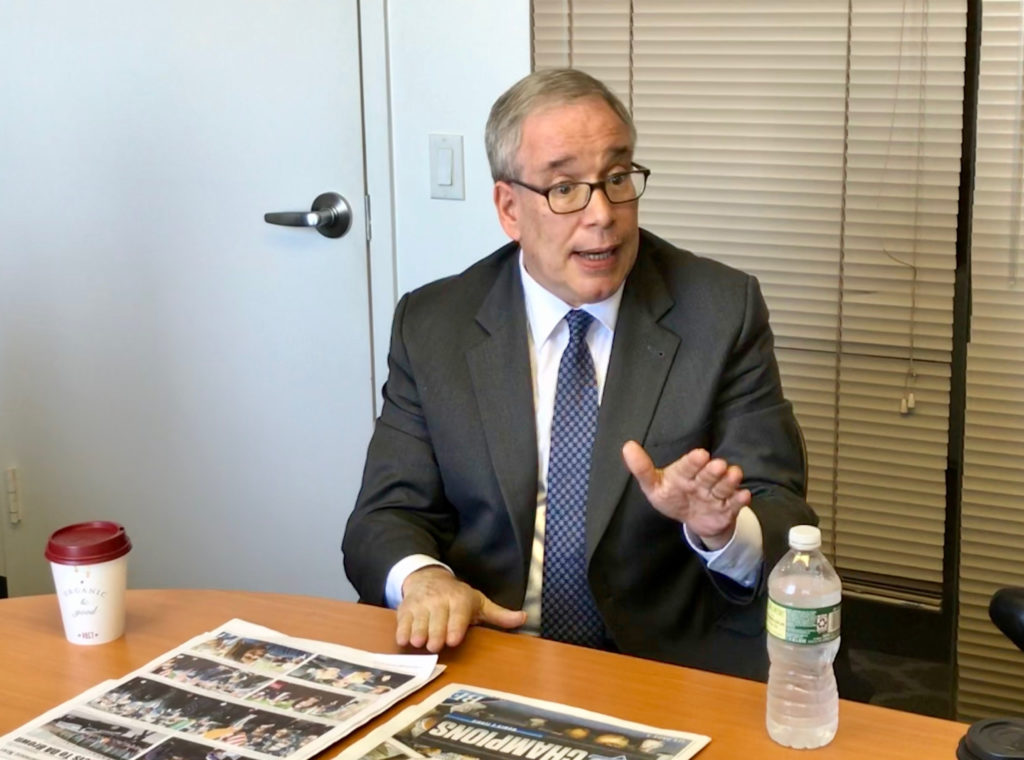Divesting from fossil fuels will pay off in long run, NYC comptroller says
Stringer: ‘Hit energy companies where they hurt'

City Comptroller Scott Stringer’s plan to divest city pension funds from fossil fuel stocks has received flack in some investment circles. He made the case on Wednesday, however, that green investing is not just a feel-good idea, but a canny investment strategy that will pay off in the long run.
Stringer oversees almost $200 billion in assets for New York City’s five public pension funds for city employees including teachers, firefighters and police.
In an interview with the Brooklyn Eagle, Stringer said that he strongly disagrees with the notion that fossil fuel stocks and bonds are gold-plated investments.

Brooklyn Boro
View MoreNew York City’s most populous borough, Brooklyn, is home to nearly 2.6 million residents. If Brooklyn were an independent city it would be the fourth largest city in the United States. While Brooklyn has become the epitome of ‘cool and hip’ in recent years, for those that were born here, raised families here and improved communities over the years, Brooklyn has never been ‘uncool’.